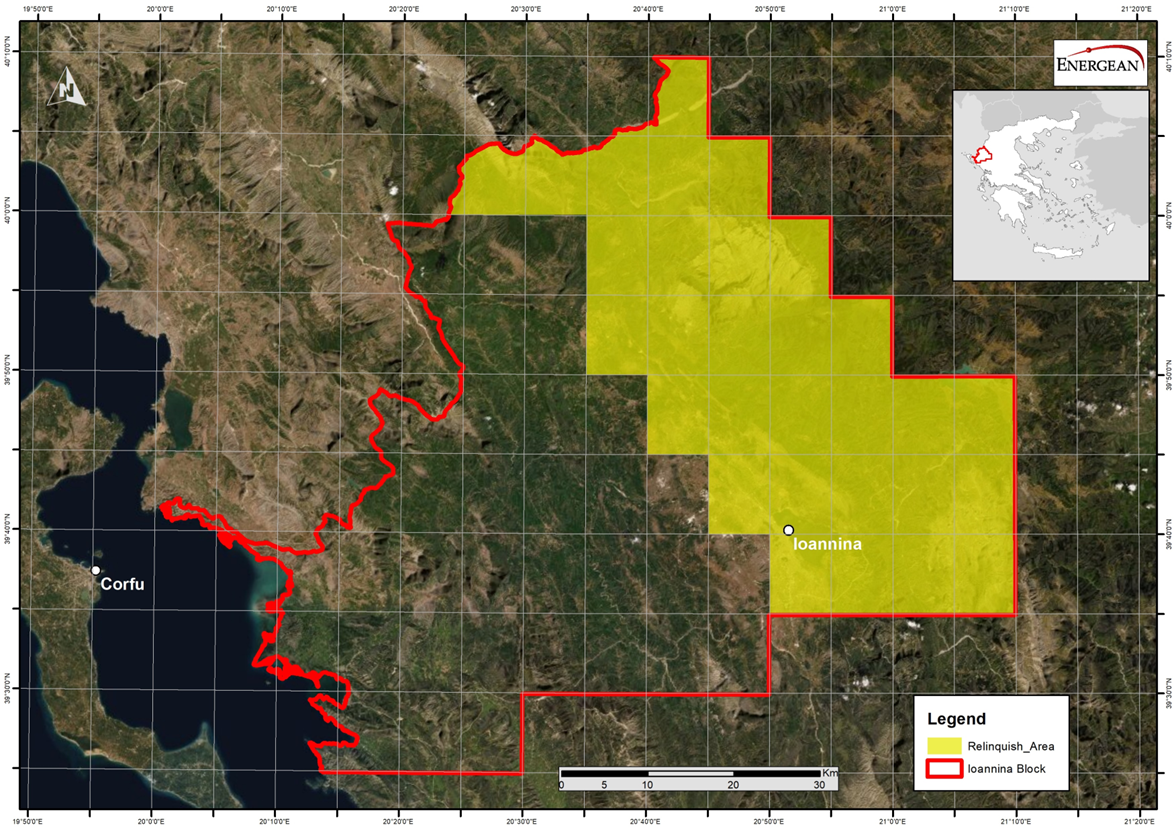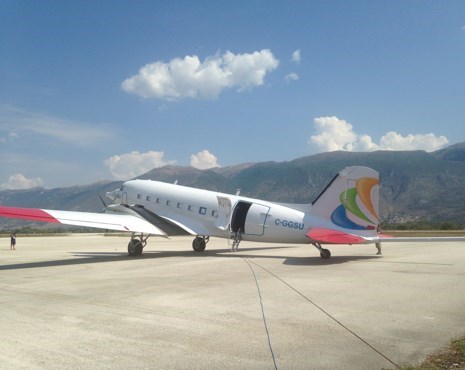Ioannina
- Home
- Operations
- Greece
- Ioannina

Energean has 100 % working interest in the Ioannina licence, onshore Western Greece.
A 2D seismic survey (400 km) was conducted in 2019.
The block initially covered an area of 4,187 km2, 47% of which has now been relinquished.
Energean has planned to drill an exploration well in 2023-2024 within the boundaries of the Zitsa municipality.
After the successful conclusion of the public consultation about the Environmental & Social Impact Assessment of the Epirus-1 exploratory well (both the Epirus Region and the Municipality of Zitsa have expressed their positive sentiment about the project), the company has been awarded Final Environmental Permit in December 2023.
In the context of the project, an Environmental Unit will be activated. The structure of the Environmental Unit can be found below:

Mr. Efstathios Skarvelas, Energean's Well Delivery Manager, is responsible for the execution of the exploratory well, and Mr. Takis Konstantopoulos, Energean's Exploration Manager, is responsible for the whole project.
Should you wish to contact us regarding the project, please fill the form below:
The block
The Ioannina block is an underexplored area of 4,187 km2. It is located onshore Western Greece and is part of the Hellinide fold belt, which hosts the prolific Ioanian Basin and Apulian platform and are on trend with recent large discoveries made in Albania.
In total, over 10 billion barrels of oil and 30 TCF of gas have been discovered throughout this region, primarily in Albania, Italy and Croatia
The proven, productive oil plays of the Ionian Basin onshore Albania extend south into the Energean Ioannina Block, where they remain substantially underexplored.
I Royal Dutch Shell has acquired the neighbouring Block 4 in Albania. Significant potential can be demonstrated in the classic thrusted Mesozoic carbonates play productive in Albania, and in the Apulian sub-thrust play similar to onshore Southern Italy.
Numerous oil seeps are well documented throughout the block area, which have been linked to the known source rocks.
History of exploration
The Ioannina block was initially explored by the Italian Army during World War II. During the 1960s, the Greek state and IFP drilled two dry wells.
Eight state-operated exploration wells drilled in the 1980s have encountered oil and gas shows throughout the Mesozoic section, as well as drilling thick sections of high quality potential source rocks in the Cretaceous, Jurassic, and Triassic. During this period approximately 1,000 km seismic lines (2D) were acquired.
The last concession holder was Enterprise Oil, which relinquished the block in 2001 after the unsuccessful drilling of the exploration well Dimitra. Enterprise Oil was later acquired by Royal Dutch Shell.
A post mortem evaluation of the wells drilled to date indicates that no valid traps were tested and this is considered the main reason for the dry holes. Due to a complex subsurface geology, the data quality of the vintage seismic is extremely poor, which makes identification of traps extremely difficult. Recent seismic reprocessing has dramatically improved the image quality which allows the identification of previously unseen prospects and leads.
Energean has been exploring the block since October 2014, after ratification by the Greek parliament of the License Agreement, signed with the Greek state on May 14, 2014.
In August 2015, Energean acquired a high resolution Airborn Gravity Gradiometry (AGG) survey of Ioannina which included aeromagnetic data and high resolution digital elevation mapping as part of the exploration work programme.

Repsol farmed-in the concession by acquiring a 60% stake and the Operatorship in 2017. The joint venture conducted a seismic survey in 2018-2019 and in early 2021 Repsol decided to withdraw from the licence. Energean agreed to get back both the Operatorship and the remaining 60% working interest. Total exploration stage expires on April 2nd, 2025.